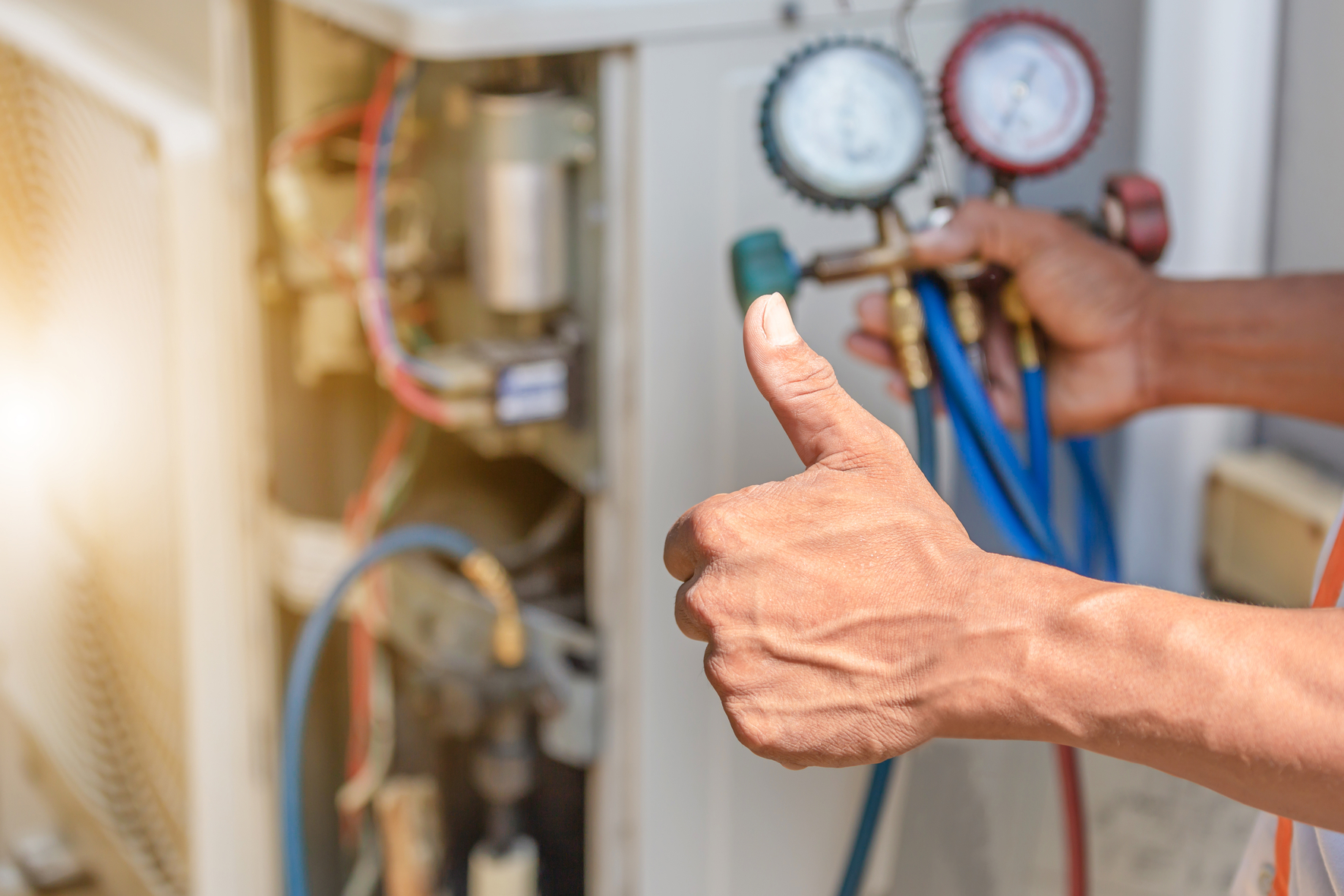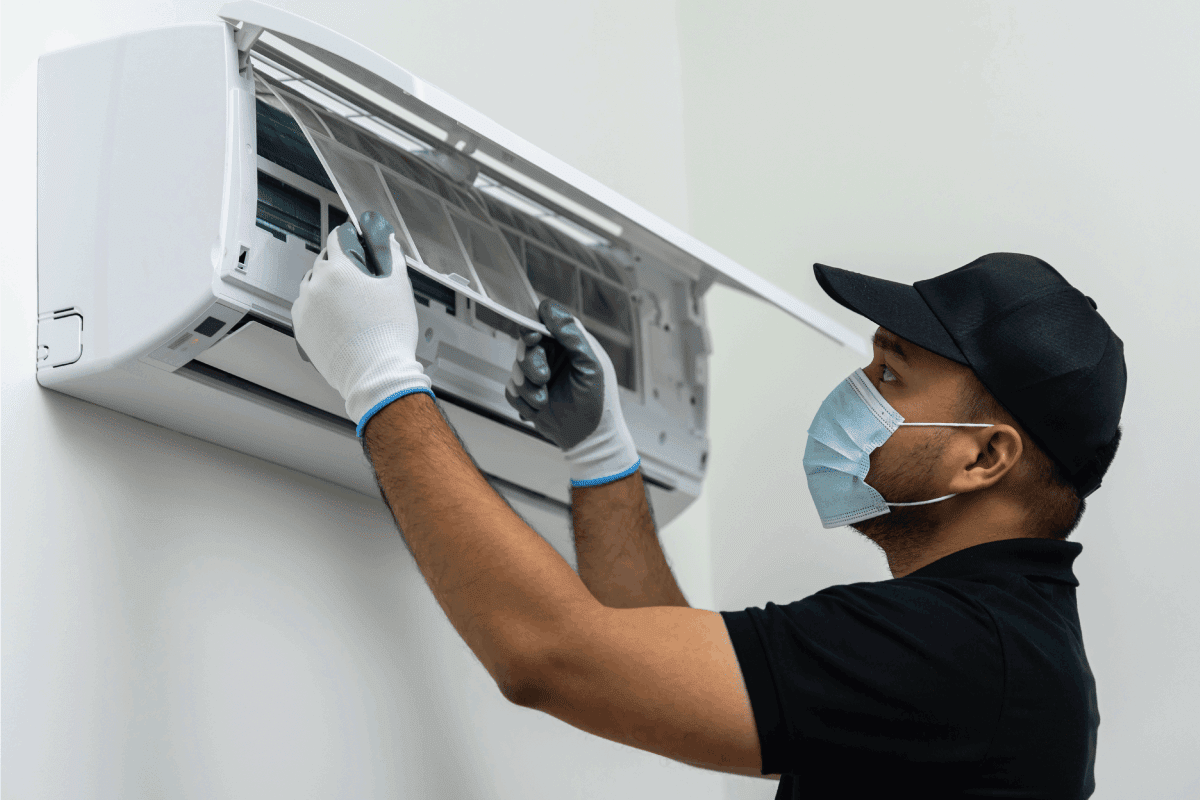Visualize your ac unit as a master carver, expertly chiseling away at the oppressive warmth in your home, leaving behind an amazing, comfy oasis. Have you ever before questioned how this modern marvel attains such a feat?
The complex dancing of cooling agents, coils, compressors, and air ducts all work in consistency to produce that invigorating blast of chilly air. But exactly how precisely do these components integrated to create that much-needed respite from the sweltering warm?
Allow's reveal the inner functions of air conditioning unit and demystify the science behind remaining cool.
Trick Takeaways

- Reliable Air conditioners make use of refrigerants to take in and release warmth, boosting cooling and power effectiveness.
- Normal upkeep ensures ideal performance, long life, and energy cost savings. home ac repair
- Appropriate sizing and style stop energy waste and guarantee also cooling distribution.
- Understanding air movement dynamics and optimization improves cooling performance and comfort levels.
The Fundamentals of Air Conditioning
Recognizing the principles of a/c can considerably boost your understanding of just how these systems operate effectively. Power efficiency is an important facet of air conditioning, as it not only affects your electricity bill however also the environment. Efficient air conditioners use less energy to cool down an area, making them cost-effective and eco-friendly. By purchasing an energy-efficient system, you can enjoy a comfortable interior setting while lowering your carbon impact.
Moisture control is another essential feature of air conditioning. A/c unit assist regulate the dampness levels in your home, producing an extra comfortable environment. Excess moisture can result in mold and mildew development and discomfort, while reduced moisture degrees can trigger completely dry skin and respiratory system concerns. A well-kept ac system can effectively regulate moisture, making sure a healthy and balanced and pleasant living setting for you and your family members.
Recognizing just how a/c systems handle energy efficiency and humidity control can assist you make informed decisions when selecting and using these systems in your house.
Understanding Refrigerants and Their Role
When it concerns air conditioning system, recognizing cooling agents and their function is important. You'll learn about the value of cooling agents in cooling down systems and just how they promote the heat transfer procedure.
Furthermore, taking into consideration the environmental effect of cooling agents is vital for lasting air conditioning services.
Duty of Refrigerants
Refrigerants play an important role in the procedure of air conditioners by helping with the transfer of heat. The effectiveness of a refrigerant straight influences the cooling process and power consumption of the system.
When considering refrigerants, it's essential to evaluate their performance against their environmental implications. Some refrigerants contribute to ozone deficiency and international warming, motivating the look for greener choices. Sustainable procedures concentrate on searching for cooling agent choices that are energy-efficient and have marginal environmental influence.
Manufacturers are increasingly investing in establishing brand-new refrigerants that align with sustainability objectives. By prioritizing cooling agent efficiency and exploring sustainable alternatives, the air conditioning industry aims to reduce its carbon impact and lessen ecological injury.
Ecological Impact Considerations
Thinking about the environmental influence of refrigerants is crucial in assessing the sustainability of cooling systems. When evaluating the environmental implications of air conditioning system, two vital factors to consider are energy performance standards and carbon footprint evaluation.
- Power Performance Specifications:
- Energy-efficient air conditioners take in less power, decreasing overall power consumption and environmental influence.
- Carbon Footprint Evaluation:
- Performing a carbon impact evaluation helps in recognizing the amount of greenhouse gas emissions connected with cooling operations.
- Cooling agent Selection:
- Going with cooling agents with reduced International Warming Prospective (GWP) can significantly reduce the environmental impact.
- Proper Disposal:
- Ensuring correct disposal of old refrigerants prevents them from damaging the environment.
- Normal Maintenance:
- Routine upkeep of a/c systems can enhance effectiveness, minimizing energy usage and environmental impact.
The Refine of Heat Transfer
When your ac unit runs, it depends on a process of warm transfer to cool your area successfully. This system entails the absorption of warm from the interior air and the exchange of thermal power to preserve a comfy temperature level.
Comprehending this essential element aids you comprehend exactly how a/c successfully manage the climate in your home.
Warm Absorption Mechanism
To successfully cool down the air in your room, ac unit employ a warmth absorption system that successfully transfers warm. This device plays a vital function in preserving temperature regulation and using advanced cooling modern technology.
Below's how the heat absorption process works:
- Refrigerant Blood circulation: The cooling agent takes in warm from the interior air.
- Compression: The compressor raises the stress of the cooling agent, causing its temperature to climb.
- Condensation: The hot, pressurized cooling agent launches heat outside as it condenses into a liquid.
- Growth Shutoff: This part reduces the cooling agent stress, creating it to cool off and evaporate.
- Evaporation: As the cooling agent evaporates, it takes in heat from the indoor air, starting the cycle over again.
Thermal Energy Exchange
In the process of thermal energy exchange, warm transfer plays a crucial function in just how ac unit function to cool down interior rooms effectively. Thermal dynamics determine that warmth constantly streams from a warmer location to a cooler one. Ac unit take advantage of this principle by extracting warm from indoor air and releasing it outside, utilizing cooling agents to promote the transfer.
Efficient thermal energy exchange is necessary for the energy effectiveness of an a/c system. By maximizing heat transfer procedures, air conditioners can cool areas properly while lessening power consumption. Recognizing the dynamics of heat transfer is vital for making and operating air conditioning system that give the preferred level of comfort without unnecessary power wastefulness.
Evaporator Coils and Their Feature
Understanding the function of evaporator coils is crucial to understanding exactly how ac unit effectively cool down interior areas. These coils play an essential role in the cooling process by taking in heat from the indoor air, which is then circulated back as awesome air.
Here are some key points concerning evaporator coils:
- Evaporator coil performance straight impacts the cooling efficiency of the ac unit.
- These coils include cooling agent that evaporates as it absorbs heat from the indoor air.
- As the cooling agent vaporizes, it transforms from a fluid state to a gas, cooling the air while doing so.
- The cooled air is then distributed throughout the room through the duct.
- Appropriate maintenance of the evaporator coils, such as routine cleaning, is necessary to assure top efficiency and energy performance.
Compressor and Condenser Operations

Effectively cooling down indoor areas entails comprehending how the compressor and condenser interact in an air conditioning system. The compressor plays a pivotal duty in the cooling procedure by pressurizing the cooling agent gas, enhancing its temperature and power degree. This high-energy gas after that moves to the condenser, where it launches warm to the surrounding setting, causing it to condense into a high-pressure fluid.
The condenser additionally cools this fluid via warm exchange with the outside air, transforming it back right into a low-pressure gas. This procedure improves power effectiveness and increases the system's cooling power. Temperature level regulation is attained as the refrigerant cycles via these system parts, soaking up heat indoors and launching it outdoors.
Air Ducts and Air Distribution
To enhance airflow and warranty constant cooling throughout your area, appropriate installation and upkeep of air ducts are necessary. Guaranteeing that your air ducts are made effectively and in a way that advertises excellent air flow characteristics is important for the total performance of your air conditioning system. Ventilation methods play a considerable role in maintaining indoor comfort degrees, so it's important to pay attention to the following:
- Air duct Design: Effectively created air ducts aid ensure that cool air gets to every corner of your room successfully.
- Airflow Dynamics: Recognizing just how air steps via the air ducts can aid you determine any type of prospective problems that might interrupt the air conditioning process.
- Routine Upkeep: Maintaining your air ducts tidy and devoid of obstructions is essential for maintaining airflow and system performance.
- Securing Leakages: Making certain that there are no leakages in your ductwork helps stop amazing air from escaping, improving energy effectiveness.
- Stabilizing Air flow: Appropriately balancing the airflow in different rooms can assist maintain regular air conditioning throughout your home or office.
Often Asked Inquiries
Exactly how Does the Size of an Ac Unit Affect Its Efficiency and Air Conditioning Ability?
When choosing an air conditioning unit, bear in mind that dimension matters. An unit that's too little may battle to cool your room efficiently, while an extra-large one may throw away energy and not dehumidify appropriately. Making sure proper sizing considerations will certainly boost performance and air conditioning ability.

The best size straight influences performance, helping you stay comfortable without unnecessary expenses. So, when it comes to ac unit, bear in mind size for best effectiveness and cooling power.

What Are Some Common Maintenance Jobs That Can Aid Improve the Life-span of an Ac Unit?
Routine upkeep tasks can greatly prolong the life of your a/c unit. Remember to change filters to ensure correct airflow and tidy coils to enhance cooling effectiveness.
Additionally, calibrate your thermostat for exact temperature analyses and check the cooling agent degrees for ideal efficiency.
Can Air Conditioners Be Used together with Other Cooling Approaches, Such as Fans or Dehumidifiers?
Yes, you can improve your cooling experience by combining your a/c with followers. This collaboration can aid circulate great air better, offering a much more comfortable atmosphere and possibly saving power.
In addition, utilizing a dehumidifier alongside your air conditioning system can boost cooling down effectiveness by minimizing moisture degrees, making your space feel cooler.
Think about these choices to enhance your air conditioning configuration and improve your general comfort throughout hot days.
Exist Any Type Of Environmental Issues Related To making use of Air Conditioners, and How Can They Be Mitigated?
When using a/c, be mindful of environmental concerns like power intake and greenhouse gas discharges.
To reduce these issues, take into consideration lasting air conditioning approaches and environment-friendly alternatives.
You can lower the impact of air conditioners by utilizing energy-efficient designs, keeping them regularly, and incorporating various other cooling methods like fans or dehumidifiers.
What Developments Are Being Made in A/c Modern Technology to Make Units A Lot More Energy-Efficient and Eco-friendly?
To make ac system a lot more energy-efficient and green, improvements like smart modern technology and green features are being established. These advancements focus on boosting energy savings and minimizing environmental impact.
By including smart modern technology, cooling systems can optimize efficiency based upon usage patterns. Using environmentally friendly products and parts also contributes to making these devices extra sustainable.
These advancements aim to boost efficiency while decreasing the environmental impact of a/c innovation.
Verdict
So, currently you understand exactly how air conditioning system function!
From the refrigerants circulating via the system to the warmth transfer procedure, each component plays a necessary role in maintaining you cool.
The evaporator coils take in warmth, the compressor and condenser launch it, and the air ducts distribute the awesome air throughout your area.
Following time you turn on your a/c, bear in mind the science behind it all! Remain awesome!
